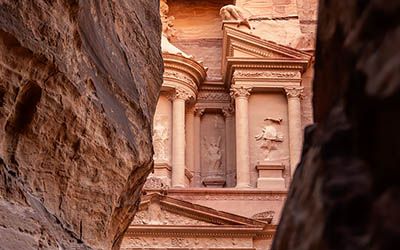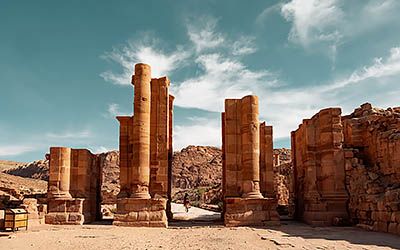Jordan, situated in the Middle East, offers a rich mix of archaeological treasures and natural wonders. The ancient cities of Petra and Jerash are impressive historical sites, while Wadi Rum and the Dead Sea offer breathtaking landscapes. The hospitality of the Jordanian people and the delightful Jordanian cuisine certainly add to its appeal. Thanks to its stable political environment and efficient infrastructure, the country is accessible and safe for travellers. Jordan is a fantastic travel destination, particularly appealing to adventurous travellers with an interest in history and nature.
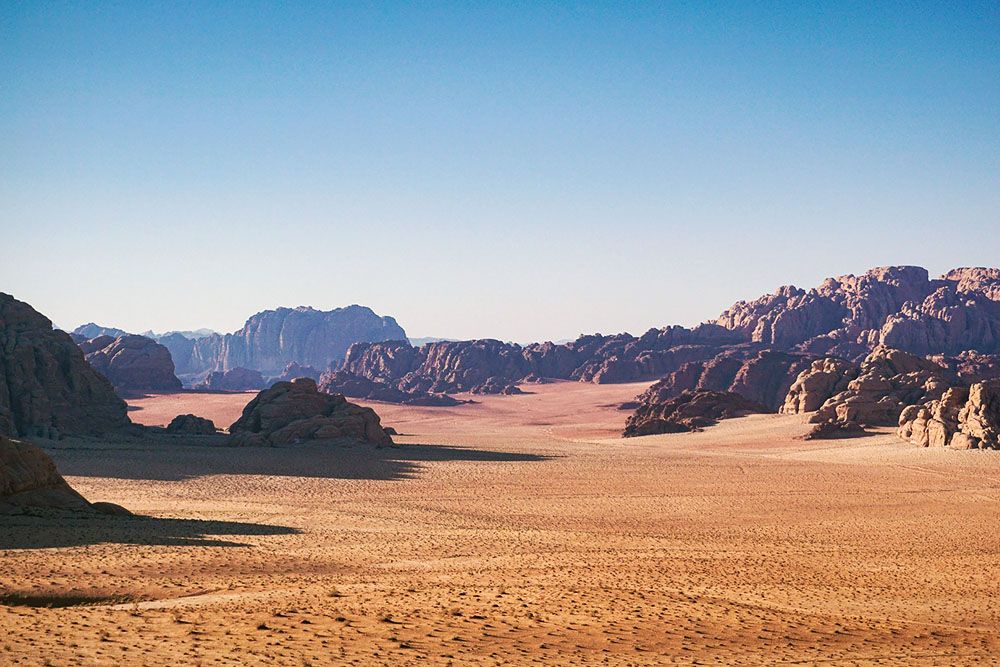
Jordan’s history in a nutshell
Jordan has a deep historical heritage dating back to ancient times. The land was home to various ancient civilizations, such as the Nabateans, who built the famous city of Petra at the end of the 2nd century BC. Furthermore, Jordan played a significant role in the trade routes of the ancient Middle East, becoming a crossroads for cultural exchange and economic activity.
During the Roman and Byzantine periods, Jordan was an integral part of the Roman Empire and served as the stage for several important historical events. Cities like Jerash flourished as prosperous Roman settlements, and the region became a cultural and intellectual center.
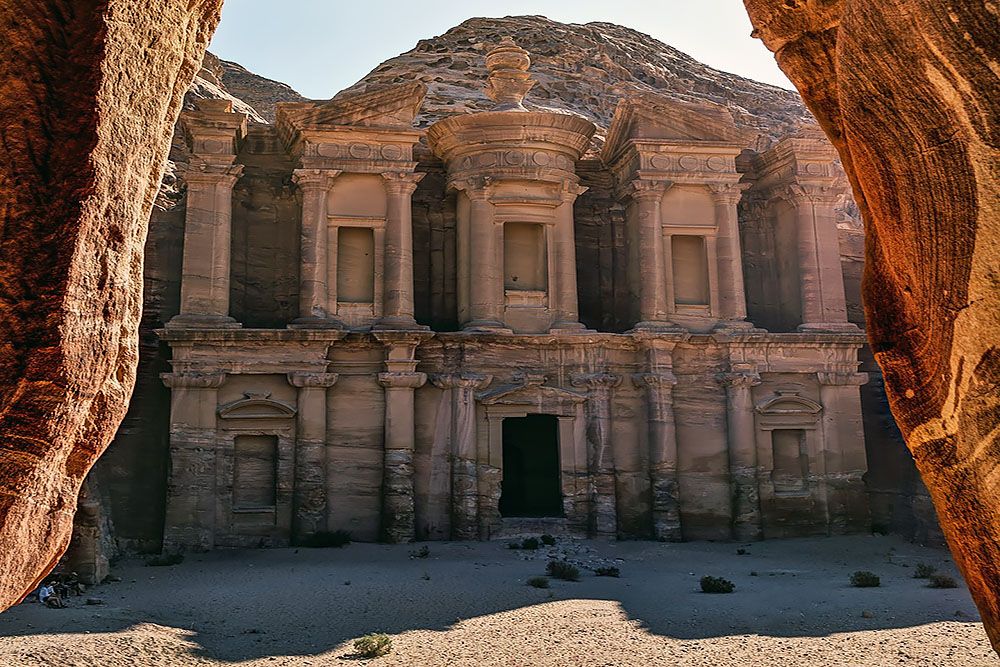
The rise of Islam brought a new era of rule to Jordan. The Umayyads, Abbasids, and Fatimids exerted their influence in the region, making Jordan an important player in early Islamic history. Additionally, Jordan saw the construction of various impressive Islamic architectural masterpieces, including the desert castles that showcase the grandeur of that era.
After World War I, Jordan became part of the British-administered mandate of Palestine. It later became an independent kingdom under King Abdullah I. Since then, Jordan has undergone various political and social developments, including participation in regional conflicts and the promotion of stability in a tumultuous region.
Travel advice for Jordan
Jordan has always been one of the safest countries in the Middle East, largely due to its good relations with both Israel and the Arab world. Jordan remains neutral, making it a safe country to travel to, even during turbulent times. However, it is advisable to avoid the border areas with Syria and Iraq. Always check the current travel advice for Jordan on the website of the Ministry of Foreign Affairs before your departure.
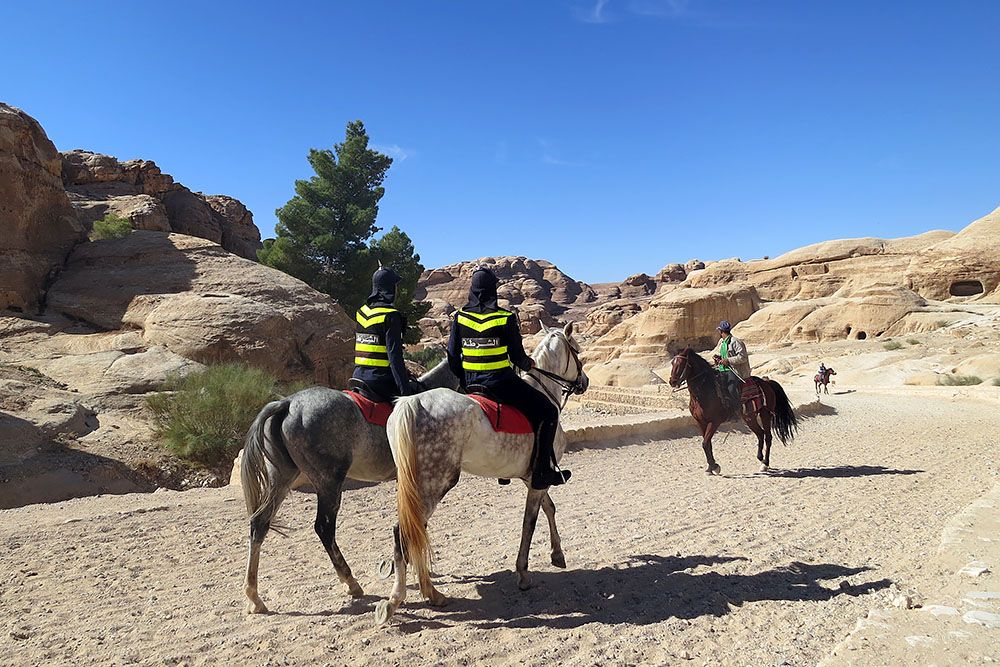
Accommodation in Jordan
Accommodations in Jordan range from luxury hotels to simple guesthouses and camping options, catering to every budget.
- Luxury hotels: Cities like Amman and Aqaba offer luxury hotels with extensive amenities, including pools, spas, restaurants, and high-quality service.
- Desert camps: For a unique experience, desert camps in areas like Wadi Rum provide the opportunity to stay in traditional Bedouin tents and enjoy the stunning desert landscapes.
- Historic accommodations: In cities like Petra, there are hotels and guesthouses housed in restored historical buildings, offering the chance to stay in a truly unique and atmospheric setting.
- Budget accommodations: Budget travellers can find simple guesthouses and hostels, especially in more touristy areas, offering comfortable accommodations at affordable prices.
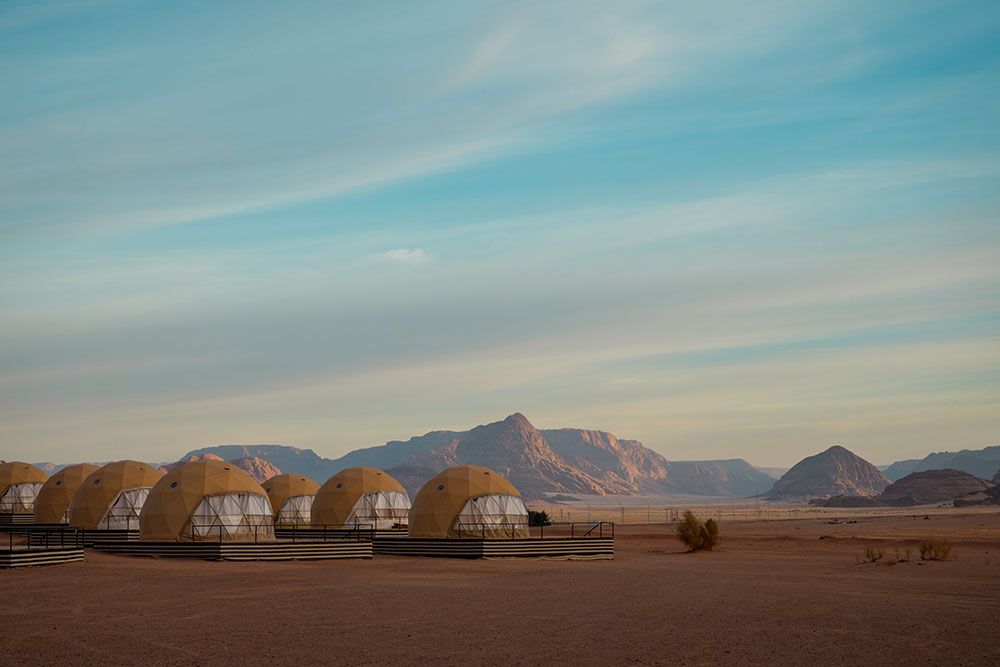
Healthcare in Jordan
Different health recommendations apply for a trip to Jordan. Vaccinations against DTP and Hepatitis A are recommended. See the advice of the National Travel Health Network and Centre (NaTHNaC) on the TravelHealthPro website for this. Additionally, vaccinations are recommended for MMR, Hepatitis B, Rabies, and Schistosomiasis.
Overall, Jordan offers reasonable healthcare facilities, especially in major cities such as Amman. Nevertheless, it is wise to obtain comprehensive travel insurance and verify coverage and access to medical care in advance.
For medication use in Jordan, it is advised to carry sufficient medication (in original packaging) along with extra supply. Also, carry a European Health Insurance Card with medical information. Additionally, check which medications require a declaration to be brought into Jordan.
While tap water is drinkable, it is recommended to boil water before consumption or only drink water from unopened bottles.
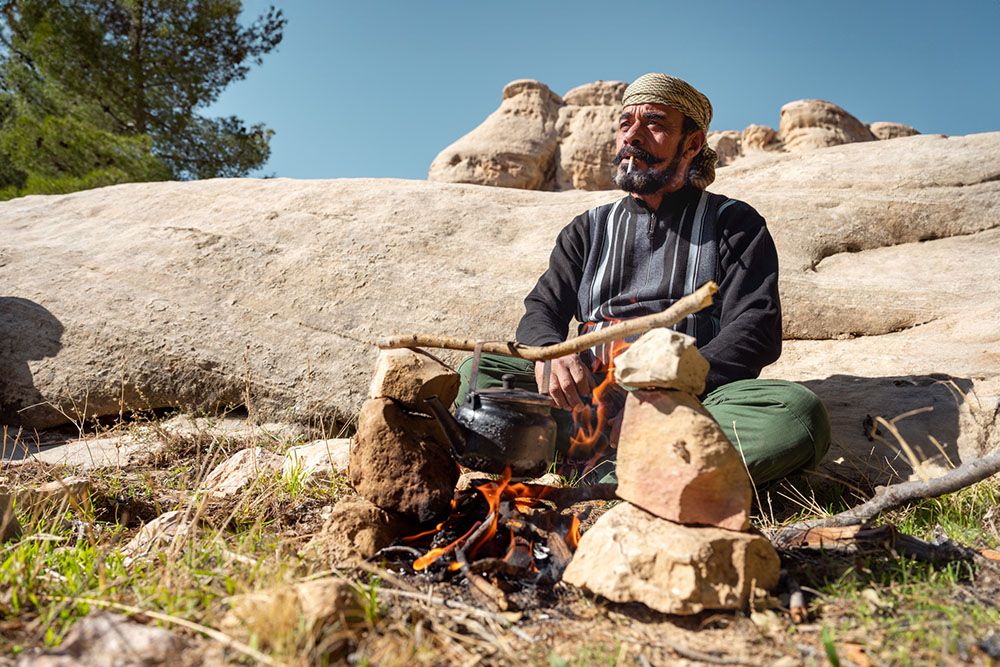
Best travel time to visit Jordan
Jordan is accessible throughout the year, but it can get extremely hot in the summer, especially in the desert. Therefore, the best time to travel is during spring or autumn. We visited the country in December, and even then, it was manageable, with only a slight chance of rain.
Visa for Jordan
You need a visa to holiday in Jordan. You can apply for a visa online. It is also possible to apply for a visa upon arrival in Jordan. Upon arrival, your passport must be valid for at least six months. Additionally, you will need proof of departure from Jordan (your return ticket). Check out the requirements on the website of iVisa.com.
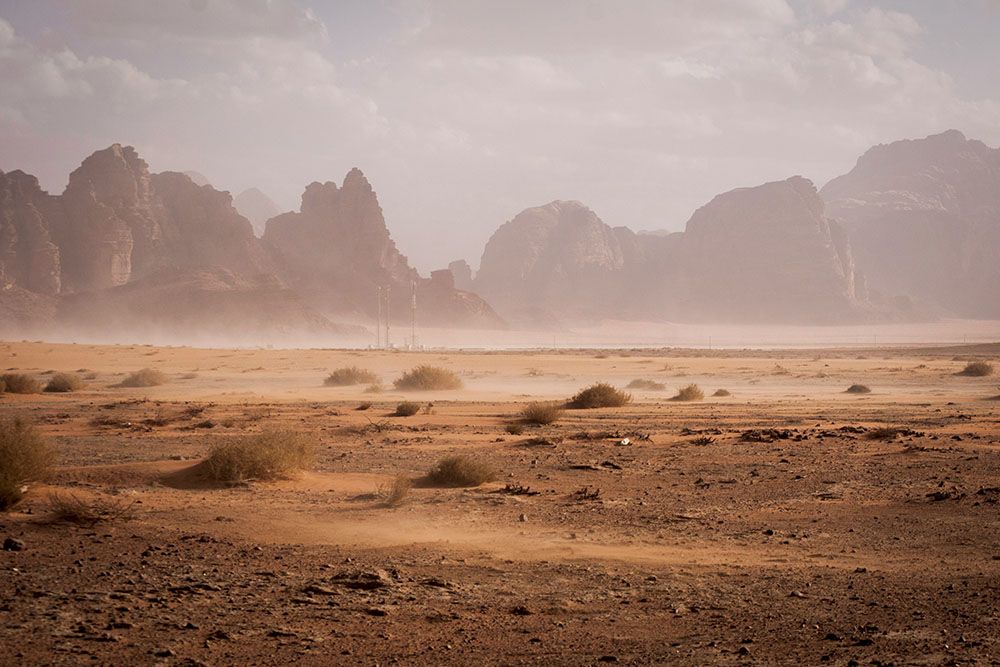
Food and drinks
Jordan offers a rich culinary experience with influences from Levantine, Mediterranean, and Middle Eastern traditions. Some renowned, typical Jordanian dishes include:
- Mansaf: Considered the national dish of Jordan, Mansaf consists of steamed rice topped with tender lamb and drenched in a thick, fermented yogurt sauce called “jameed.” This savoury dish is often served during special occasions and celebrations.
- Falafel: A well-known dish in the entire region, it comprises fried balls made from ground chickpeas or fava beans, often served in pita bread with fresh vegetables, tahini sauce, and hummus.
- Maqluba, which means “upside down” in Arabic, is an aromatic one-pot dish consisting of layers of rice, eggplant, tomato, potato, and meat, then served upside down.
- Sajiyeh: This is a traditional dish prepared over an open fire by heating a cast-iron pan until it becomes extremely hot. Meat and vegetables are then added, and the resulting splattering fat ignites the flame, resulting in flame grilled chicken.
- Knafeh: This dessert comprises thin strands of semolina baked to a crispy golden colour and filled with creamy, melted cheese. The dessert is drizzled with a sweet syrup and finely chopped pistachios.
Refreshing drinks like Bedouin coffee, Ayran, and mint tea complement the meals.
If cooking is one of your hobbies, in Jordan, you can take cooking classes to discover the secrets of Jordanian cuisine. Furthermore, the local markets, known as “souks,” offer a wealth of fresh produce, herbs, and spices, allowing you to explore and taste the authentic flavour of Jordan.
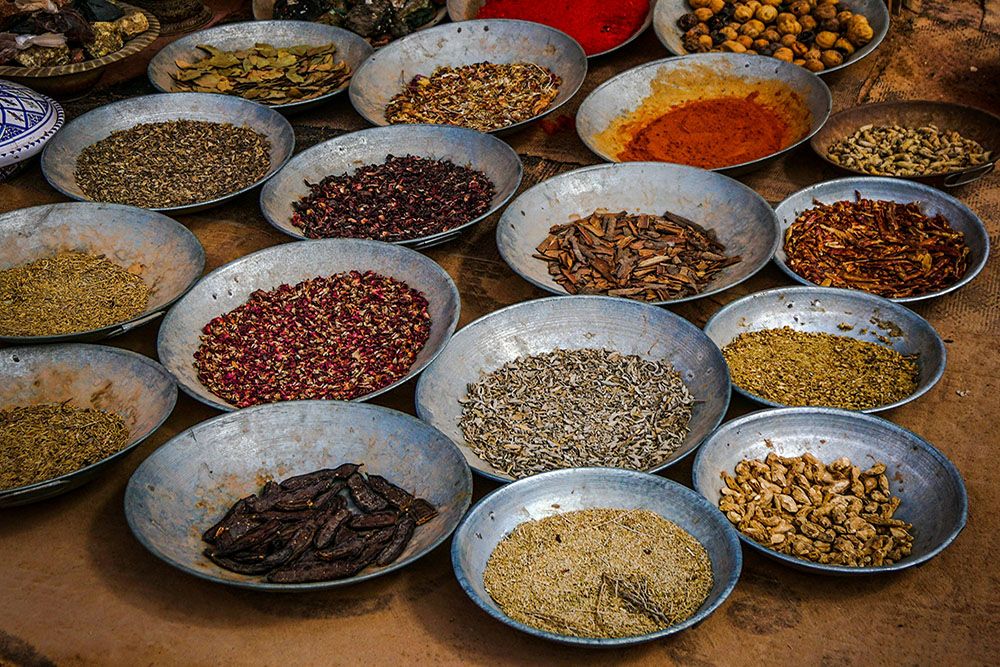
Travelling in Jordan
Transportation is well-organized in Jordan, offering various options for getting around the country. Here are some of the key modes of transportation in Jordan:
- Taxis: A common and convenient way to travel within cities and villages. It is advisable to agree on a fare in advance. Otherwise, ensure that the meter is used.
- Buses: Jordan’s bus network is well-developed, connecting various cities and regions. Several bus companies offer comfortable and affordable travel options.
- Rental cars: For those seeking the freedom to explore the country, there are several car rental companies in cities and at airports. However, we recommend renting a car in advance from a provider offering an all-inclusive package (including excess waiver and all insurances). We have had good experiences with Zest. Keep in mind that traffic in Jordan can be particularly chaotic, especially in urban areas.
- Private chauffeur: For a more luxurious and comfortable travel experience.
- Trains: Jordan has a limited railway network, with a single line connecting the capital, Amman, to several other cities like Zarqa and Russeifa.
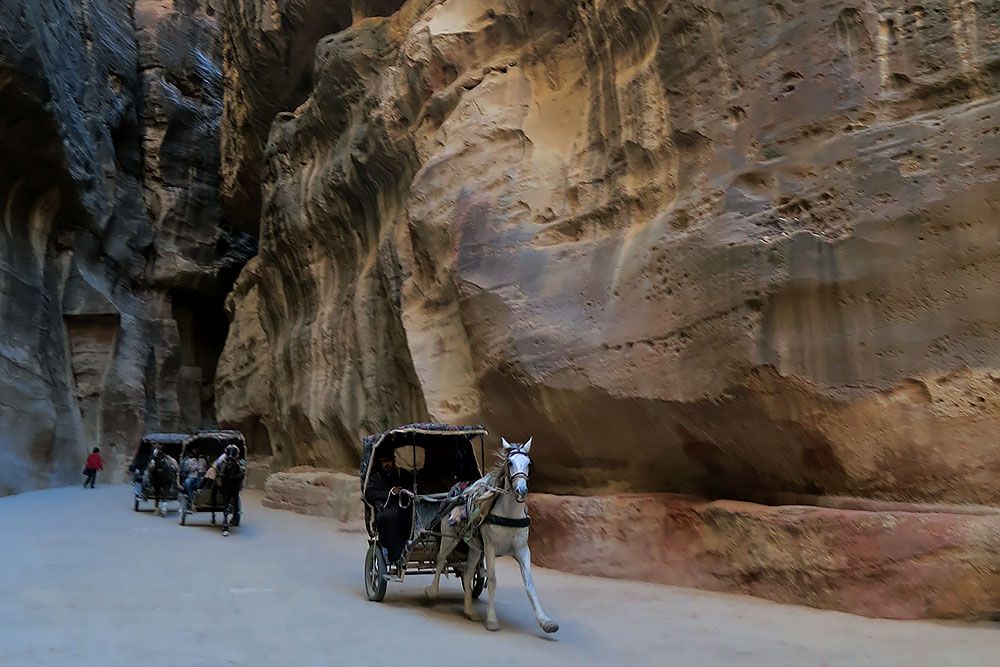
Electricity
In Jordan, you will find electrical outlets of type C, D, F, G, and J. The voltage is 230 V at 50 Hz. You need a power plug adapter when living in the UK or Ireland.
Money matters
The currency in Jordan is the Jordanian Dinar. The price level in Jordan is generally lower than in the Netherlands, especially for dining out. For clothing and souvenirs, you will pay comparable prices to those in our own country. In Jordan, you can also use your debit card in many places, particularly in larger cities and tourist spots. Nonetheless, we advise you to carry some cash in euros.
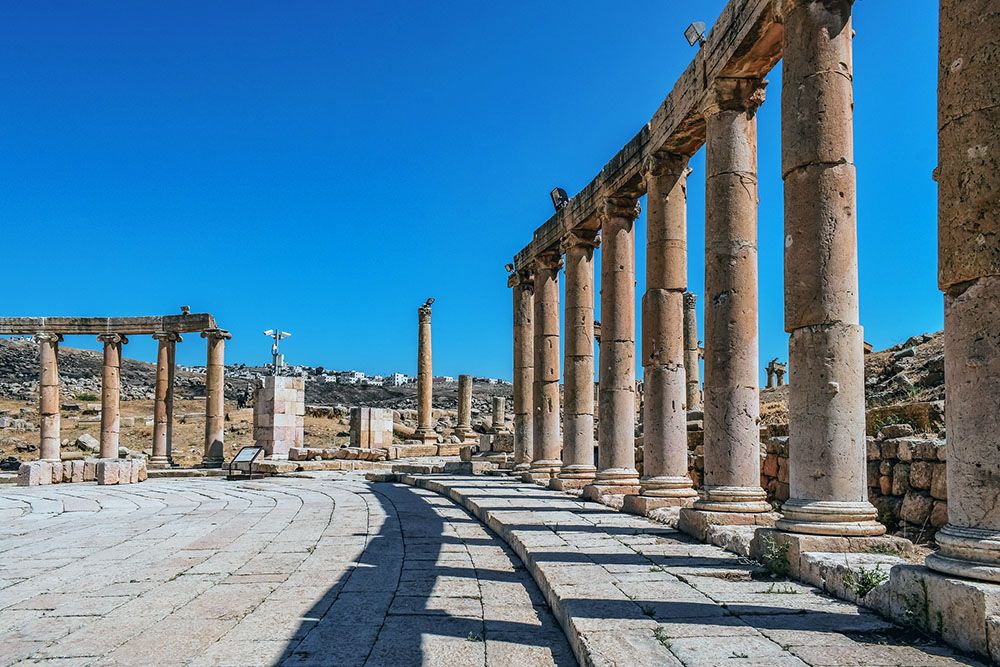
Dos and don’ts when visiting Jordan
For a positive experience in Jordan, it is important to respect local customs and traditions.
Do’s
- Respect the culture: Show respect for local culture and traditions, such as wearing modest clothing, especially when visiting religious sites.
- Try local dishes: Enjoy the diverse Jordanian cuisine, including dishes like mansaf, falafel, and knafeh.
- Negotiate at markets: When shopping at local markets, it is customary to negotiate prices.
- Respect hospitality: Appreciate the hospitality of the Jordanian people and be polite in interactions with the local population.
Don’ts
- Public displays of affection: Avoid public displays of affection, such as holding hands, especially in more conservative areas.
- Alcohol in public: It is not customary to consume alcohol in public, except in tourist areas and licensed bars and restaurants.
- Inappropriate clothing: Avoid wearing revealing clothing, especially when visiting religious sites and in more traditional communities.
- Photography without permission: Always ask for permission before taking photos of people, especially residents.
- Criticism of the royal family or religion: Refrain from publicly criticising the royal family or religious beliefs.
Highlights of Jordan
The Petra Back Trail: the best route to a world wonder
There is something magical about Petra, the ancient city carved into Jordan's red cliffs. The scale of the buildings intertwined with nature would make contemporary architects envious. Petra is Jordan's most famous attraction, but most...
The Jordan Trail: hiking trail across stunning Jordan
Whenever you think of Jordan, you think of Petra, and also perhaps desert. But the country has so much more to offer. The hospitality is unprecedented and the landscape is overwhelmingly beautiful. Across this enchanting country lies a...

